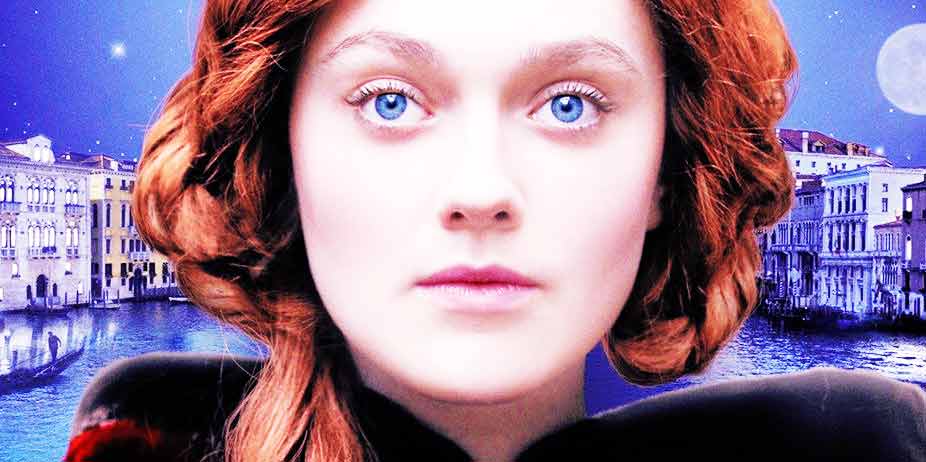
Effie Gray (2014)
Art critic John Ruskin has fascinated audiences for generations. An enigmatic, peculiar man, his marriage caused a major scandal when his six-year wife revealed he never touched her once. This slow-moving film focuses on that wife, as her sanity and happiness unravel against his only true passion -- art.
Having met Ruskin as a child, Effie Gray (Dakota Fanning) is now his wife. Eager to embrace her duties and begin having children, she is somewhat unnerved to accompany her new husband (Greg Wise) to his parents' home. The imperious Mr. and Mrs. Ruskin (David Suchet, Julie Walters) have an almost unnatural influence over their son. His mother dotes on him, pampering his cough. His father indulges him, admiring his genius. And Effie... is left with nothing to do. Reading in her husband's study will "bore her," Ruskin assures her. Helping his mother with her roses is not allowed. She is much too fine a lady to mend his shirts, the housekeeper scolds her for tracking mud across a newly cleaned floor, and she has no virtually no role at his dinner parties.
Worse, Ruskin took one look at her naked form on their wedding night and walked out of the room. He has not touched her since. Effie's world grows smaller. She starts losing her hair and feeling ill. And then she meets the vivacious, opinionated Lady Eastlake (Emma Thompson), her husband's patroness. Lady Eastlake urges her to get Ruskin away from his parents -- and Effie soon accompanies him to Vienna. Tragically, however, her husband shows more interest in lamenting over Venice's fallen state than in making her his wife. As her unhappiness increases, her dreams of children slip away... and she meets a young artist (Tom Sturridge) who kindles her soul.
This screenplay fails on a few levels -- it does not establish reasons for Ruskin's disinterest in his wife, which forced me to do research after the fact, nor does it inform us of what happened after Effie left his house. With these motivations and conclusions left unexplored, the film has a frustrated feel that matches the irritation of Effie, paralleling her confusion and self-doubt (it drives her into illness and psychosis) but fails to satisfy the audience. It is also a one-sided portrait of Ruskin, choosing not to focus on his genius, but making him an unlikable one-note villain who does not even notice his wife's hair loss, he is so absorbed with pretentious thoughts. He is abrupt, emotionally abusive in his contempt, and his parents equally unlikable -- forcing Effie out of bed to make a dinner appearance when she is unwell.
But, otherwise, it's a masterful production. The casting is marvelous, although the male lead is a good twenty years older than he should be. Dakota shows restrained emotion well, her misery bleeding out in her long walks and pensive silences. One of her brighter moments is Effie shining at a male-dominated dinner party, by asking an intelligent question -- that her husband rapidly answers and dismisses, a symbolic reference to the impending state of her life. She is a heroine you cannot help rooting for, so the curious place the film ends is a little puzzling. Still, the costume design is magnificent, the musical score at times intrusive but moving, and the dialogue crisp. If nothing else, it may interest you in Victorian artists and send you down a historical rabbit hole.
Sexual Content:
A man briefly masturbates under the covers, until his wife
notices. A woman reveals herself to her husband (we see her shoulders and bare
back) and he leaves the room. A woman sees a man skinny dipping (distant bare
backside). A man gropes a woman's backside, frightening her. Discussion revolves
around impotency and virginity; a woman has a marriage annulled due to remaining
a virgin. She has a non-graphic vaginal exam.
Language:
None.
Violence:
None.
Other:
None.
